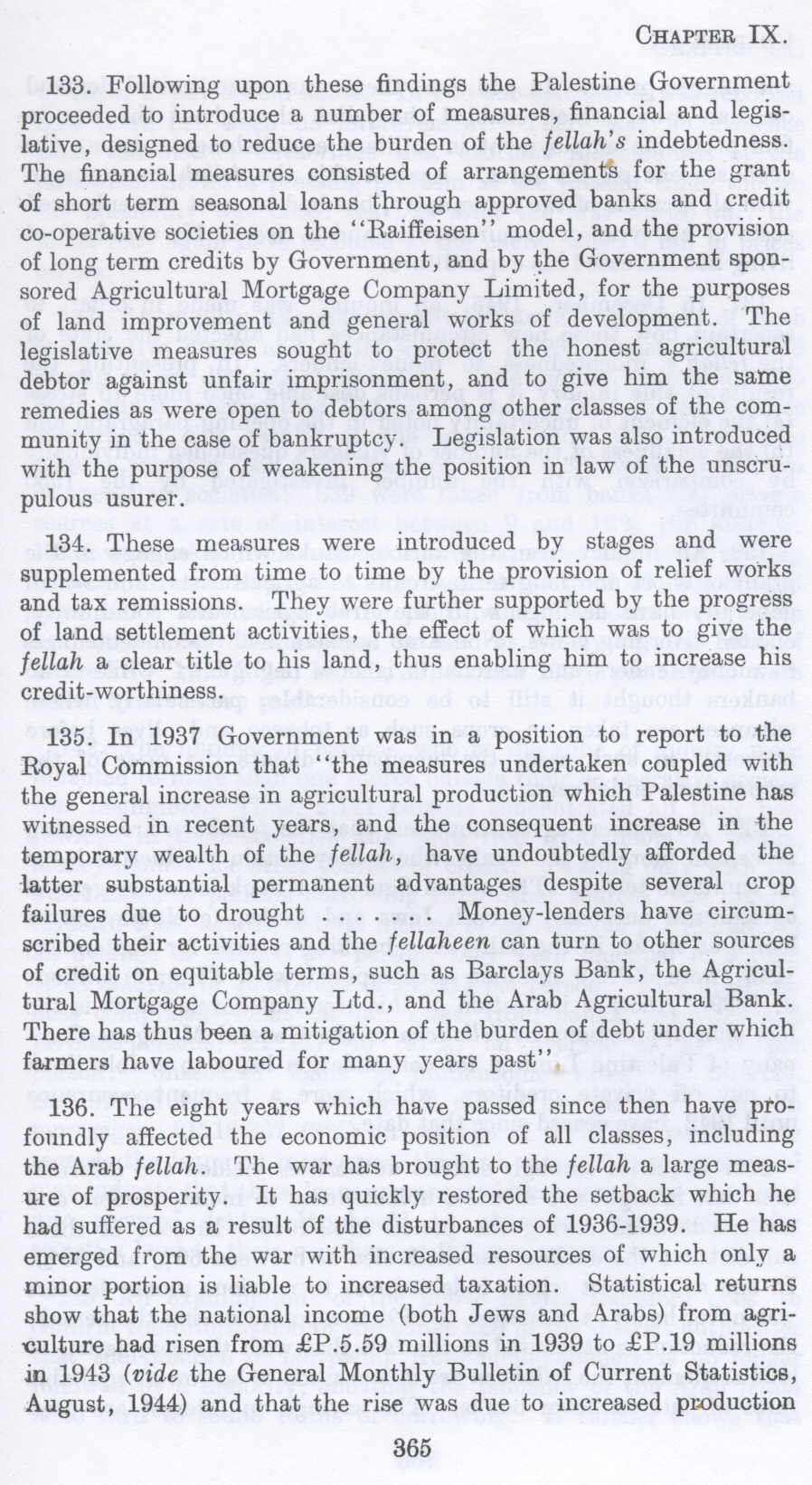| Prev | Next |  |
| Prev | Next |
| PalestineRemembered | About Us | Oral History | العربية | |
| Pictures | Zionist FAQs | Haavara | Maps | |
| Search |
| Camps |
| Districts |
| Acre |
| Baysan |
| Beersheba |
| Bethlehem |
| Gaza |
| Haifa |
| Hebron |
| Jaffa |
| Jericho |
| Jerusalem |
| Jinin |
| Nablus |
| Nazareth |
| Ramallah |
| al-Ramla |
| Safad |
| Tiberias |
| Tulkarm |
| Donate |
| Contact |
| Profile |
| Videos |
British Mandate: A Survey of Palestine: Volume I - Page 365 |
Disclaimer
The above documents, article, interviews, movies, podcasts, or stories reflects solely the research and opinions of its authors. PalestineRemembered.com makes its best effort to validate its contents.


Post Your Comment
*It should be NOTED that your email address won't be shared, and all communications between members will be routed via the website's mail server.
133. Following upon these findings the Palestine Government proceeded to introduce a number of measures, financial and legislative, designed to reduce the burden of the fellah's indebtedness. The financial measures consisted of arrangements for the grant of short term seasonal loans through approved banks and credit co-operative societies on the "Raiffeiseu" model, and the provision of long term credits by Government, and by the Government sponsored Agricultural Mortgage Company Limited, for the purposes of land improvement and general works of development. The legislative measures sought to protect the honest agricultural debtor against unfair imprisonment, and to give him the same remedies as were open to debtors among other classes of the community in the case of bankruptcy. Legislation was also introduced with the purpose of weakening the position in law of the unscrupulous usurer.
134. These measures were introduced by stages and were supplemented from time to time by the provision of relief works and tax remissions. They were further supported by the progress of land settlement activities, the effect of which was to give the fellah a clear title to his land, thus enabling him to increase his credit-worthiness.
135. In 1937 Government was in a position to report to the Royal Commission that "the measures undertaken coupled with the general increase in agricultural production which Palestine has witnessed in recent years, and the consequent increase in the temporary wealth of the fellah, have undoubtedly afforded the fatter substantial permanent advantages despite several crop failures due to drought . . . . . . Money-lenders have circumscribed their activities and the fellaheen can turn to other sources of credit on equitable terms, such as Barclays Bank, the Agricultural Mortgage Company Ltd., and the Arab Agricultural Bank. There has thus been a mitigation of the burden of debt under which farmers have laboured for many years past"
136. The eight years which have passed since then have profoundly affected the economic position of all classes, including the Arab fellah. The war has brought to the fellah a large measure of prosperity. It has quickly restored the setback which he had suffered as a result of the disturbances of 1936-1939. He has emerged from the war with increased resources of which only a minor portion is liable to increased taxation. Statistical returns show that the national income (both Jews and Arabs) from agriculture had risen from £P.5.59 millions in 1939 to £P.19 millions in 1943 (vide the General Monthly Bulletin of Current Statistics, August, 1944) and that the rise was due to increased production
Page 365